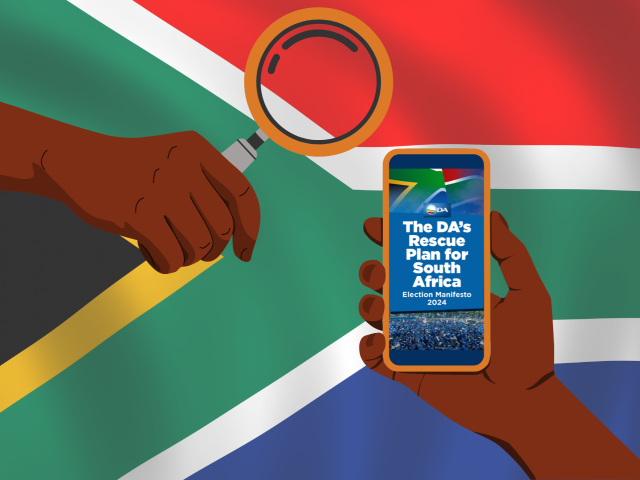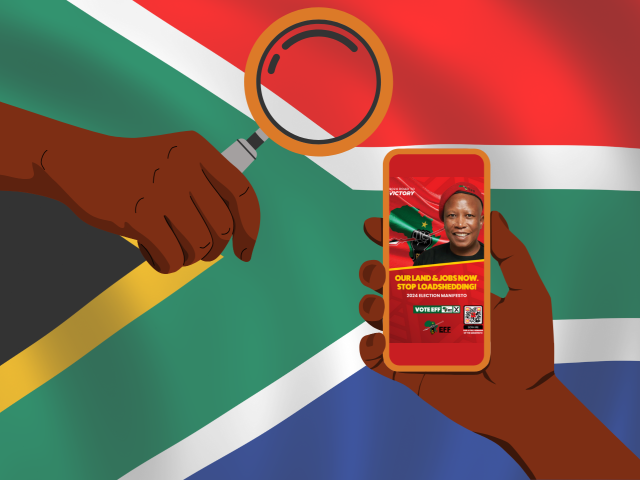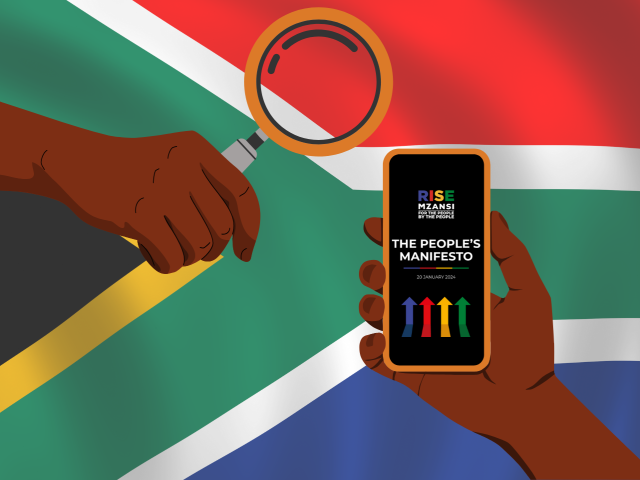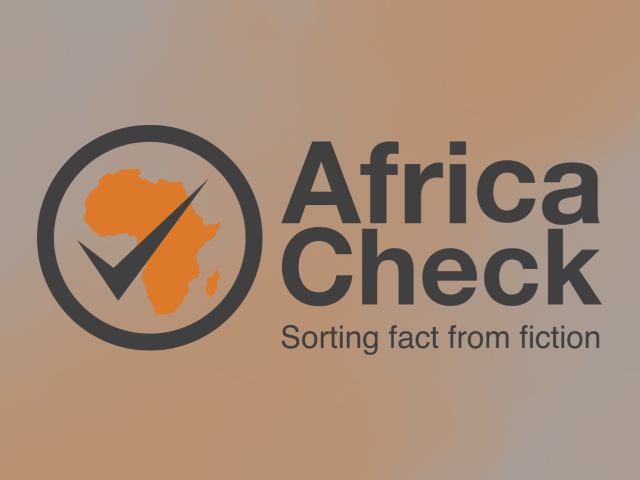South African housing minister, Mmamoloko Kubayi, recently came under fire on social media for saying in an interview that “when the constitution says people have a right to shelter it's not because it says it must be done by the government”.
As many people immediately pointed out, the South African constitution does explicitly call for the state to ensure the right to adequate housing.
Kubayi defended her comments, saying in a post on X (the social media platform formerly called Twitter) that they were taken out of context.
What caught our eye at Africa Check, however, weren’t Kubayi’s comments about the constitution but recent claims about housing provided by the South African government.
During her speech at the debate on the state of the nation address, better known as the Sona, Kubayi said: “Of the 10.6 million additional households now living in formal dwellings, 4.8 million households were provided by this government.”
Later that day, during an interview live streamed by parliament, Kubayi repeated the claim, saying “almost 4.8 million houses [that] were provided for by this government” since 1996.
This claim is misleading. We’ve explained why many times in the past, but we’ll do so again here, with updated figures.
Houses vs ‘housing opportunities’
The question of how many houses the South African government has built has plagued Africa Check for years:
- In 2014, the ruling African National Congress (ANC) claimed it was 3.3 million.
- In 2016, then minister of human settlements, Lindiwe Sisulu, claimed it was 6 million.
- In 2017, Sisulu claimed it was 10 million.
- In 2019, president Cyril Ramaphosa claimed it was 4 million.
- In 2019 and 2024 the ANC claimed it was 4.7 million.
The most common issue with these claims is that they confuse newly built houses with government-subsidised housing opportunities. The latter encompasses all government-subsidised housing initiatives, such as housing subsidies, and “serviced sites”. Many of these don’t involve receiving a newly built house. A serviced site, for example, is simply a plot of land which has been connected to utilities.
In January 2024, while fact-checking Ramaphosa’s January 8th statement, Africa Check reached out to the Department of Human Settlements (DHS) for updated housing figures.
The department, which Kubayi heads, said that it keeps track of the number of housing opportunities provided in a database called the Housing Subsidy System (HSS). It also said that it had recently begun visiting beneficiaries to confirm that numbers reported by provinces over the years were accurate. This has resulted in lower verified totals than the DHS provided to Africa Check in the past.
While the database is not publicly available, the DHS said that when all housing opportunities were considered, the department had provided 4,851,599 housing opportunities since 1994. This is presumably what Kubayi was referring to as “almost 4.8 million houses”. But not all housing opportunities are houses.
The DHS told Africa Check that “the total number of assisted beneficiaries concerning houses is 2,039,859”.
It should not be difficult for Kubayi, Ramaphosa or their speechwriters to check the HSS and report accurate housing figures. In doing so, it should also not be difficult to highlight the difference between a house and a housing opportunity.
One beneficiary can receive multiple housing opportunities
In a subtle way, Kubayi’s claim during her Sona debate speech was doubly incorrect. As well as claiming that 4.8 million housing opportunities were “formal dwellings”, she said that they had been provided to “4.8 million households”.
According to the DHS, housing opportunities have been provided to 3,304,199 beneficiaries. This is because one beneficiary may receive multiple housing opportunities, “such as first being given a serviced stand and later be provided with subsidised housing on that allocated stand”, the department said.
That means that an absolute maximum of just over 3.3 million households were beneficiaries of any housing opportunity.
Why it matters
On 29 May 2024 South Africans will head to the polls to elect a new government. Their decision, while based on several factors, will be influenced by the information political parties share. This information should be based on facts.
The number of people provided with government housing, and the number of people who therefore still need housing, are important figures. They are used as markers of progress and should therefore feed into policy decisions. An incorrect understanding of the situation could result in the misallocation of resources. We need our elected officials to be well-informed.
Lauren Royston, director of research and advocacy at the Socio-Economic Rights Institute of South Africa, told Africa Check that the principles of transparency and accountability “are important in any democratic society”.
“The state must allow us to hold it to account every year, but especially in an election year. We all know that the run-up to elections is full of promises. Without clarity on actual delivery, we cannot accurately assess whether promises made are fulfilled,” she said.
Everyone gets it wrong sometimes. As part of our fact-checking, Africa Check encourages politicians to be more transparent about false or misleading claims they may have made and to correct or withdraw these claims from public circulation.
Politicians who repeat these incorrect figures, reinforce a false understanding of housing and keep the misleading claim alive. We’ll continue to fact-check claims about housing but a transparent correction from Kubayi, or the president, would help build and sustain the public’s trust at a time when access to accurate information is more important than ever.
RIGHT OF REPLY: Following publication of this article, Minister Mmamoloko Kubayi contacted Africa Check and asked that we publish her response, in which she disputes the above figures.
That response can be read in full here.
Africa Check has not altered our original commentary, which accurately reflects the information provided to us by the Department of Human Settlements in January 2024.
Given its important mandate, Africa Check will continue to directly engage with the Department to examine the issues raised.






Add new comment